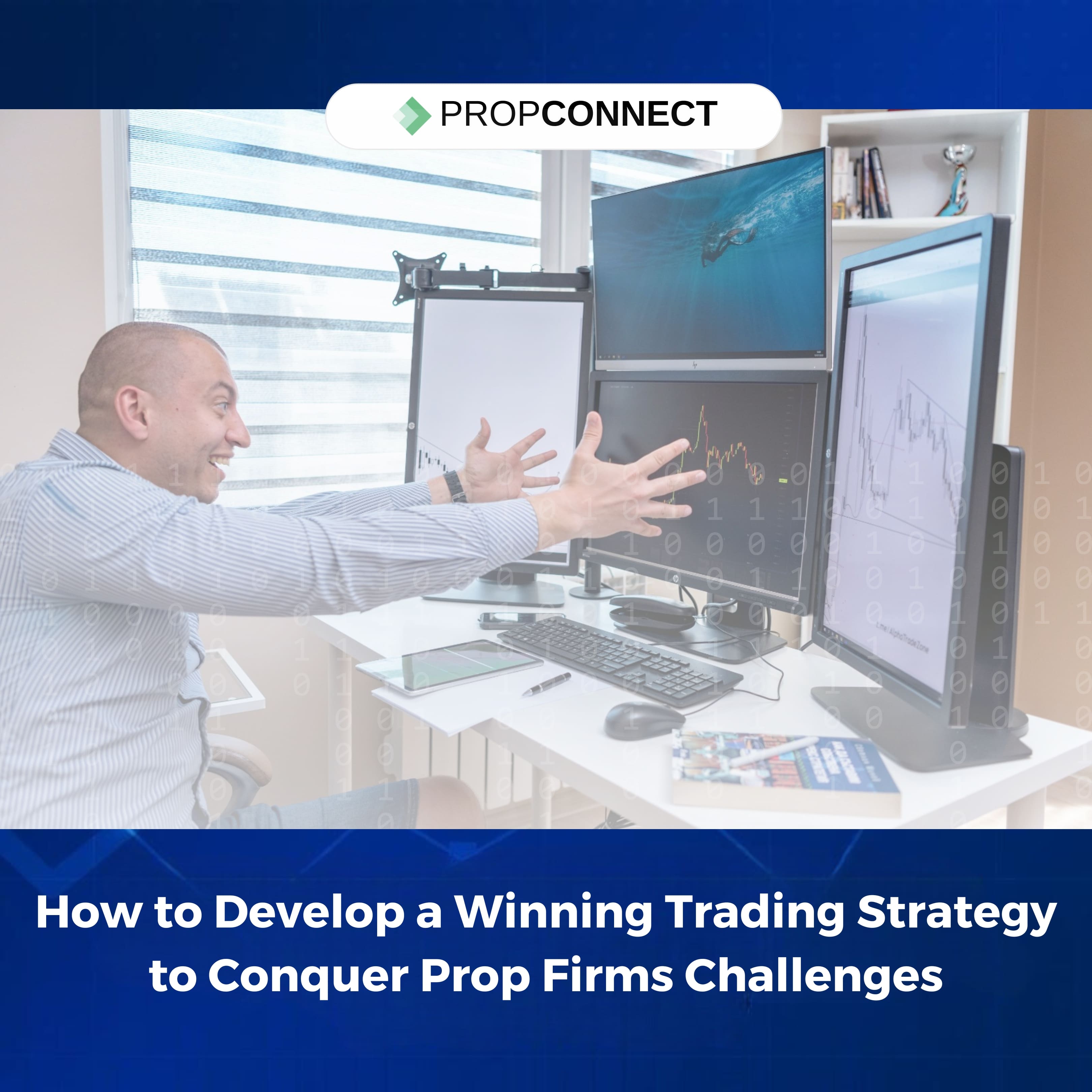How to Develop a Winning Trading Strategy to Conquer Prop Firms Challenges
Introduction:
Becoming a successful trader in the world of Proprietary Trading, often referred to as Prop Firms Trading, is an exciting but challenging journey. To overcome the hurdles and thrive in this field, you need a winning trading strategy. In this article, we'll explore how to develop such a strategy while highlighting the importance of trader recruitment and training in Prop Firms Trading.
Trader Recruitment: Finding the Right Fit
Skill Assessment:
Recruiting the right traders is the first step in developing a successful trading strategy. It's essential to assess their skills, knowledge, and experience in financial markets. Look for traders who demonstrate discipline, a deep understanding of trading principles, and a passion for learning.
Risk Tolerance:
Understanding a trader's risk tolerance is crucial. Prop Firms often have specific risk management guidelines. Traders must align with these guidelines and be comfortable with the level of risk associated with Prop Firms Trading.
Adaptability:
In Prop Firms Trading, markets can be unpredictable. Traders must be adaptable and open to adjusting their strategies when needed. Look for candidates who can think on their feet and make quick, informed decisions.
Trader Training: Nurturing Skills and Knowledge
Ongoing Education:
Once traders are recruited, continuous education is essential. Prop Firms should invest in training programs that keep traders updated on market trends, new trading techniques, and risk management strategies.
Practical Experience:
Providing traders with practical experience is invaluable. Simulated trading environments can help them hone their skills without risking real capital. This hands-on experience is crucial in developing a winning trading strategy.
Developing a Winning Trading Strategy:
Define Clear Goals:
Start by setting clear, achievable trading goals. Whether it's daily, weekly, or monthly targets, having specific objectives provides direction and motivation.
Risk Management:
Effective risk management is at the core of any winning trading strategy. Determine how much capital you're willing to risk on each trade, and set stop-loss orders to limit potential losses.
Strategy Selection:
Choose a trading strategy that aligns with your risk tolerance and market expertise. Common strategies include day trading, swing trading, and trend following. Select the one that suits your strengths and preferences.
Data Analysis:
Use data analysis to inform your decisions. Evaluate historical market data, trends, and relevant economic indicators. This data-driven approach can help you make more informed trading decisions.
Diversification:
Avoid putting all your eggs in one basket. Diversify your portfolio by trading different assets or markets. This spreads risk and reduces the impact of potential losses.
Continuous Improvement:
A winning trading strategy is never static. Keep refining and improving your strategy based on market feedback and changing conditions. Embrace a culture of continuous learning and adaptation.
Emotional Control:
Emotions can cloud judgment. Develop emotional discipline to avoid impulsive decisions. Techniques like meditation and mindfulness can help you stay focused and in control.
Conclusion:
Developing a winning trading strategy to conquer the challenges in Prop Firms Trading requires a combination of careful trader recruitment and thorough training. Traders need to align with the firm's goals, risk management policies, and adapt to market changes. With clear goals, effective risk management, data analysis, and a commitment to continuous improvement, traders can increase their chances of success in the dynamic world of Proprietary Trading. By cultivating both trader skills and a robust trading strategy, you'll be better prepared to navigate the ever-changing financial markets and thrive in the realm of Prop Firms Trading.
What is a Proprietary Trading Strategy?
A Proprietary Trading Strategy is a plan of action that traders, often working for Prop Firms, follow to buy and sell financial assets. These strategies are designed to maximize profits while managing risks.
Why is Trader Recruitment Important?
Recruiting the right traders is crucial for the success of a Proprietary Trading Strategy. The skills, adaptability, and risk tolerance of traders significantly impact the strategy's effectiveness.
How Does Trader Training Benefit Proprietary Trading?
Trader training programs help traders acquire new skills, stay updated on market trends, and gain practical experience. This ongoing education is vital for developing and implementing a winning trading strategy.
What Are Common Trading Strategies in Prop Firms?
Common trading strategies in Prop Firms include day trading, swing trading, and trend following. The choice of strategy should align with a trader's strengths and risk tolerance.
What Role Does Data Analysis Play?
Data analysis involves evaluating historical market data, trends, and relevant economic indicators. It informs trading decisions and enhances the effectiveness of a trading strategy.



